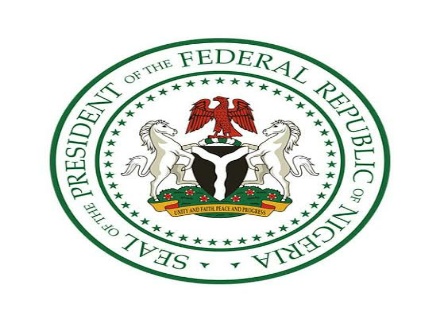10 Most Powerful Political Offices in Nigeria
Nigeria has a large number of political posts and government offices, many of which are held by prominent politicians. The precedence of the country’s power starts from the president down to the least office. Let’s look at others that are following in the rundown. The top 10 political positions and the responsibilities placed on their holders will be covered in this article. The political officials holding these top positions in the government are indicated in the list below.

TOP 10 POLITICAL OFFICES IN NIGERIA
The top 10 most powerful political offices in Nigeria would be discussed below.
OFFICE OF THE PRESIDENT OF THE FEDERAL REPUBLIC OF NIGERIA
The President of Nigeria occupies the highest political post in Nigeria. The Federal Executive Council, National Security Council, and National Defence Council all have the President as a member by statute. This is the highest position in the federal government’s executive branch. The President has the authority to appoint federal executive, regulatory, judicial, and diplomatic officials and is charged with the primary duty of formulating foreign policy. The President is also given the authority to carry out and enforce federal laws of Nigeria. The Federal Republic of Nigeria’s president also has the authority to sign or reject federal legislation, as well as control over both domestic and federal policies. Muhammadu Buhari, who took office on March 29, 2015, is the current president and commander-in-chief of the Nigerian armed forces.
OFFICE OF THE VICE PRESIDENT OF THE FEDERAL REPUBLIC OF NIGERIA
The Vice President’s post is the second-highest political seat in Nigeria’s executive arm. The Vice President is also elected democratically to a four-year term with the President. The Vice President is first in line to become president in the event that the President is unable to carry out his or her responsibilities.
The Vice President is a part of the National Economic Council, National Security Council, and Federal Executive Council. The National Economic Council’s chairman is designated by law to be the vice president. The Vice President of Nigeria is the second-highest official in the executive branch of the government, but his or her relative strength depends on the President’s specified tasks. Yemi Osibanjo, who took office on March 29, 2015, is the vice president of Nigeria at the moment.
OFFICE OF THE PRESIDENT OF THE SENATE OF NIGERIA
The Senate President is in charge of preside over the Senate of Nigeria, the upper house of the country’s bicameral legislature. The 109 members of the National Assembly’s upper body perform an indirect vote to select the Senate President. If the President and Vice President are unable to handle the responsibilities of the Presidency, the Senate President will take the helm of Nigeria. The position of Speaker of the Nigerian Senate has been held by Ahmed Ibrahim Lawan since March 11, 2019.
OFFICE OF THE SPEAKER OF THE HOUSE OF REPRESENTATIVES OF NIGERIA
The most senior member of the lower house of Nigeria’s bicameral National Assembly is the Speaker of the House of Representatives. The large majority of the House of Representatives’ members vote to elect the Speaker of the House. If the President, Vice President, and Senate President are unable to manage the office of the Presidency, the Speaker of the House of Representatives will take the helm as the third person in line to succeed them. The office of Speaker of the House of Representatives was taken by Femi Gbajabiamila on March 12, 2019.
OFFICE OF THE MINISTER FOR JUSTICE AND ATTORNEY-GENERAL OF THE FEDERAL REPUBLIC OF NIGERIA
The Ministry of Justice is led by Nigeria’s Minister of Justice and Attorney General. This office is in charge of providing legal advice to the federal government and defending Nigeria in court cases. The Federal Republic of Nigeria’s Attorney-General is also responsible for defending Nigerian citizens from arbitrary executive actions. The Nigerian Attorney-General is the fourth in line to succeed the President of Nigeria. Abubakar Malami took office as the nation’s attorney general and minister of justice on March 11, 2015.
OFFICE OF THE DEPUTY SENATE PRESIDENT OF NIGERIA
The second-highest position in the Nigerian Senate, the Deputy Senate President is chosen through an indirect vote held inside the Senate. The Deputy Senate President serves as the Senate President in the unavailability of the Senate President. The Deputy Senate President comes in at number five in the presidential line to the throne. Obarisi Ovie Omo-Agege, who took office on March 11, 2019, is the deputy senate president at the moment.
OFFICE OF THE DEPUTY SPEAKER OF THE HOUSE OF REPRESENTATIVES OF NIGERIA
The second-highest member of Nigeria’s bicameral National Assembly is the Deputy Speaker of the House of Representatives, which is the lower house. The Deputy Speaker is chosen by a majority of the members of the Nigerian House of Representatives in an indirect house election. The Deputy Speaker of the House of Representatives is in charge of leading the body if the Speaker is not present. The Deputy Speaker is the sixth candidate to become president. Ahmed Idris Wase has served as the Deputy Speaker of the Nigerian House of Representatives since March 12, 2019.
OFFICE OF THE SECRETARY TO THE GOVERNMENT OF THE FEDERATION
The Secretary to the Government of the Federation is in charge of overseeing and coordinating the activities of federal departments, agencies, and ministries as well as coordinating the implementation of policies. Boss Gida Mustapha serves as the government of the Federation’s secretary at the moment.
OFFICE OF THE HEAD OF THE CIVIL SERVICE OF THE FEDERATION
The task of overseeing and enhancing the capabilities of the Federal Civil Service is under the purview of the Office of the Civil Service of the Federation. He or she makes sure that the workforce is dedicated, focused, and disciplined in order to assist the Federal Government in carrying out its policies and programs. Dr. Folasade Yemi-Esan is the leader of the Federation’s civil service at the moment.
OFFICE OF THE NATIONAL SECURITY ADVISOR
The National Security Advisor is charged with advising the Presidency on matters of national security. This involves advising the Presidency on issues involving intelligence activities of agencies and presenting the President with suggestions about activities of security agencies. The National Security Advisor is a representative of this political position on the Federal Executive Council, National Security Council, and Presidency. Babagana Monguno is the current national security adviser.



